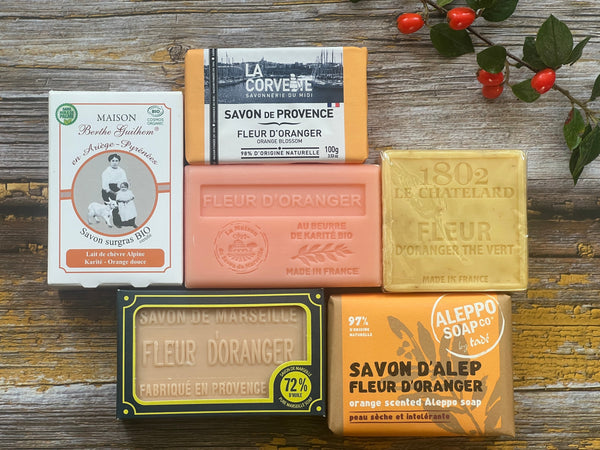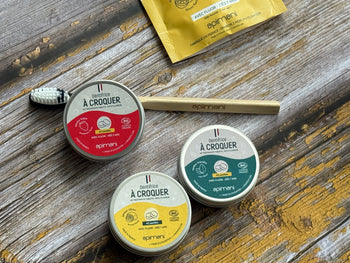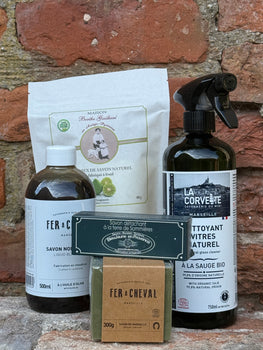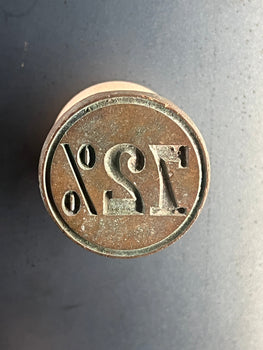
Gifting couldn't be easier
Add a gift message to be emailed to when their parcel arrives, or at a time of your choice.
When you pick up a beautifully scented bar of soap or a luxurious liquid hand wash, the aroma is one of the first things you notice. That scent could come from essential oils or from perfume (fragrance oils) — but what’s the difference, and which is better for you?
Let’s explore the advantages, disadvantages, and differences of each, so you can make the best choice for your skin, your nose, and your home.
What They Are:
Essential oils are concentrated plant extracts obtained through steam distillation, cold pressing, or resin tapping. Think lavender, lemon, eucalyptus, rose, or peppermint — each oil carrying its plant’s unique scent and properties.
Advantages:
Natural Origins: Derived entirely from plants — no synthetic chemicals.
Aromatherapy Benefits: Can offer mood-boosting, relaxing, or invigorating effects (lavender for calm, citrus for energy).
Skin-Friendly Options: Some essential oils have antibacterial or soothing qualities which are beneficial to most skin types including problem-prone skin.
Eco-Credential: Fully biodegradable when pure and sustainably sourced.
Disadvantages:
Allergy Risk: Even natural compounds can cause allergic reactions or irritation in sensitive skin.
Shorter Scent Life: Essential oils are more delicate and may fade faster than synthetic fragrance oils.
Cost: High-quality essential oils can be more expensive to produce, especially rare oils like rose or neroli.
Light & Heat Sensitivity: Can degrade if exposed to sunlight or stored improperly.
What is perfume?
Perfume can be entirely synthetic or a blend of natural and synthetic components. They’re designed to replicate natural scents or create entirely new ones that don’t exist in nature.
Advantages:
Long-Lasting Scent: Generally stronger and more stable than essential oils.
Wider Range of Fragrances: Can mimic exotic plants, baked goods, or abstract “fantasy” scents.
Consistent Quality: Batch-to-batch scent variation is minimal, unlike with natural harvests.
Cost-Effective: Often less expensive than pure essential oils.
Disadvantages:
No Therapeutic Benefits: While they smell lovely, fragrance oils don’t provide aromatherapy effects.
Potential Skin Sensitivity: Some synthetic compounds can irritate sensitive skin or cause allergies.
Environmental Considerations: Not all fragrance oils are biodegradable; quality and sourcing vary widely.
In Bar Soap:
Essential oils provide a gentle, natural aroma that fade's with time.
Perfume holds scent better over time.
In Liquid Soap:
Essential oils can create a fresher, more “authentic” scent but may need stabilisers.
Perfume provides a stronger, more stable fragrance, especially for high-traffic use like kitchens and bathrooms.
Feature Essential Oils Perfume Oils
| Origin | 100% plant-based | Natural + synthetic or fully synthetic |
| Scent Longevity | Moderate | Long-lasting |
| Cost | Often higher | More affordable |
| Skin Sensitivity | Possible (especially citrus oils) | Possible (depending on formulation) |
| Environmental Impact | Fully biodegradable | Varies — depends on ingredients |
| Aromatherapy | Yes | No |
Traditional Marseille Soap is entirely fragrance free, made from pure plant oils, normally Olive but can also be coconut or sustainable palm
Fragranced Marseille Market soaps normally use perfume, to replicate the essences of the natural landscape and provide a bold fragrance for your home.
Modern artisanal soaps tend to use essential oils like lavender, verbena, or rosemary to keep their heritage and natural appeal.
For sensitive skin: Choose a mild essential oil soap, patch test first.
For strong, long-lasting scent: Go for high-quality perfume soap.
For sustainability & tradition: Essential oils, especially when locally sourced, win.
For variety & creativity: Perfume opens up a whole world of fragrance possibilities.
Whether you choose essential oils or perfume oils, always buy from reputable makers who clearly label their ingredients and prioritise skin safety. At French Soaps UK, we stock both varieties — so you can find the perfect scent for your skin, your home, and your lifestyle.
©️ French Soaps UK 2025
If you would like help shopping this article, or have further product or ingredient questions then please contact us and we will be happy to help. E. bonjour@frenchsoaps.co.uk T. 01423 803080
Telephone or Whats App: 01423 803080
Email: bonjour@frenchsoaps.co.uk
Social: @FrenchsoapsUK
Address: Unit 14 Ousegill Business Park, Carr Side Road, Great Ouseburn, North Yorkshire, YO26 9AE
Sign up for our newsletter and get all the latest news, offers and more delivered straight to your inbox. You can unsubscribe at any time. By 'submitting' you are agreeing to our T&C's and Privacy Policy.
Gifting couldn't be easier
Add a gift message to be emailed to when their parcel arrives, or at a time of your choice.



